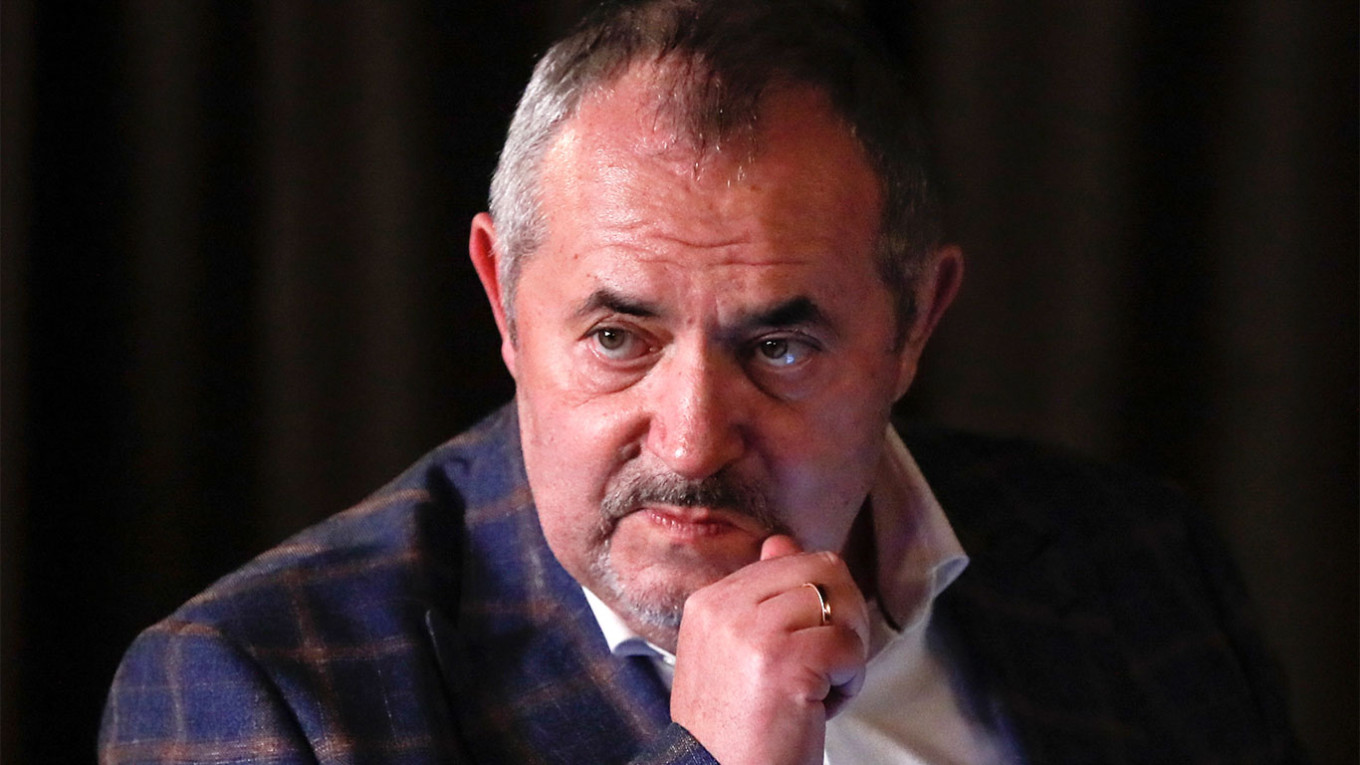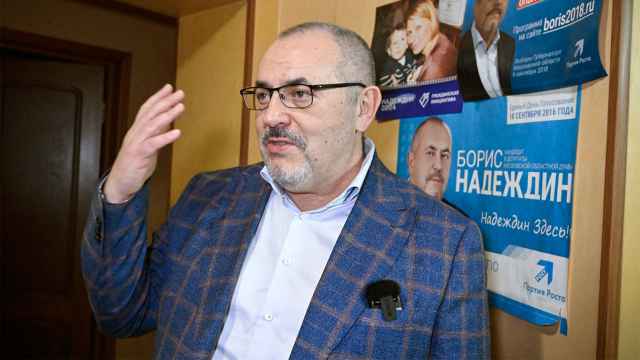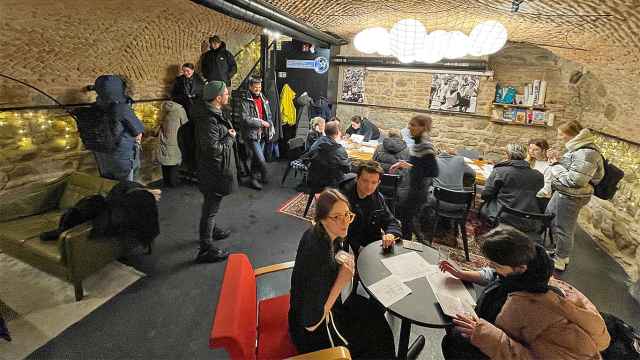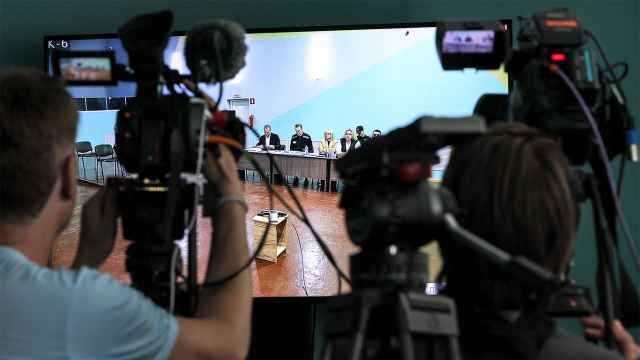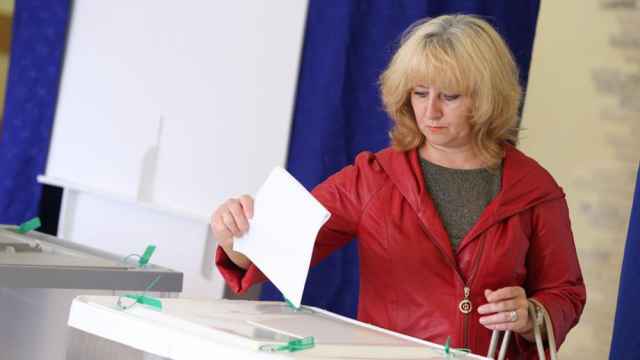Boris Nadezhdin says he will not rally his supporters to protest against his exclusion from next month's presidential election — because, he says, he has learned from “Alexei Navalny's mistakes.”
“It would mean exposing my supporters to the police and Rosgvardia’s batons,” Nadezhdin told The Moscow Times, referring to the inevitable crackdown awaiting unauthorized protests in Russia.
“That’s not right and doesn't lead anywhere.”
Nadezhdin, the only presidential hopeful to openly condemn the war in Ukraine, was barred from the ballot despite earning the endorsement of thousands of Russians, a decision upheld by the Supreme Court this week. He said he plans to appeal the Supreme Court’s move.
“We’ll keep trying to get back to the ballots by using the judiciary system,” he told The Moscow Times in a phone interview.
The death of Navalny, the Kremlin's most formidable critic, in a prison colony in Russia’s Arctic has cast a shroud of despair over what remains of Russia’s opposition after years of repression.
Like Nadezdhin, Navalny was also barred from running for president, with his 2018 campaign blocked because of criminal charges widely seen as politically motivated. In response, Navalny called for mass protests which were brutally repressed across the country.
But Nadezhdin said he rejects Navalny’s tactics, instead aiming to achieve change through the electoral system rather than risk a direct confrontation with authorities.
“I don’t want any revolution or coup d’etat happening in Russia,” he said. “I want the government to change as a result of elections.”
Nadezdhin, 60, said he and Navalny chose very different paths, with the latter’s investigations into Putin and his lavish lifestyle striking a nerve.
“Navalny ended up behind bars mainly because he criticized Putin on a personal level; he was making very harsh statements about Putin,” Nadezhdin said. “I criticize [Putin’s] policy but never him as a person, I never discussed his personal affairs.”
Nadezhdin also said he sees Navalny’s strategy of exposing high-level corruption as ultimately ineffective in Russia's current political context.
“Accusations of corruption don’t work at all in Russia because the majority of Russians think more or less like this: ‘If someone is in the government, it is absolutely normal that he receives some [illegitimate] income’,” he said. “Unfortunately, that’s how it is.”
Navalny, the most prominent Russian opposition leader and Putin critic, died at age 47 last Friday in the Polar Wolf penal colony in the Arctic Circle under unclear circumstances.
Nadezhdin said he sees Navalny as a victim of the regime’s political repressions.
“If Alexei wasn’t put in prison for many years with absolutely false accusations, and if they hadn’t adopted all those harsh conditions of imprisonment, I think he would be alive and well,” Nadezhdin said.
But while Navalny’s allies and Western officials have accused President Vladimir Putin of being personally involved in his death, Nadezhdin is unwilling to point the finger at the Russian president.
“In Russia, no one dares to say such things about Putin and that is just wrong,” he said. “Let’s wait for the expert's official conclusions and let’s not make political statements until we figure out what happened.”
On Wednesday, the Supreme Court rejected the third and final of Nadezhdin’s appeals against the Central Election Commission (CEC)'s disqualification of his candidacy.
Nadezhdin now intends to appeal the court’s ruling. This week, he announced he had left Russia for a short vacation with his family.
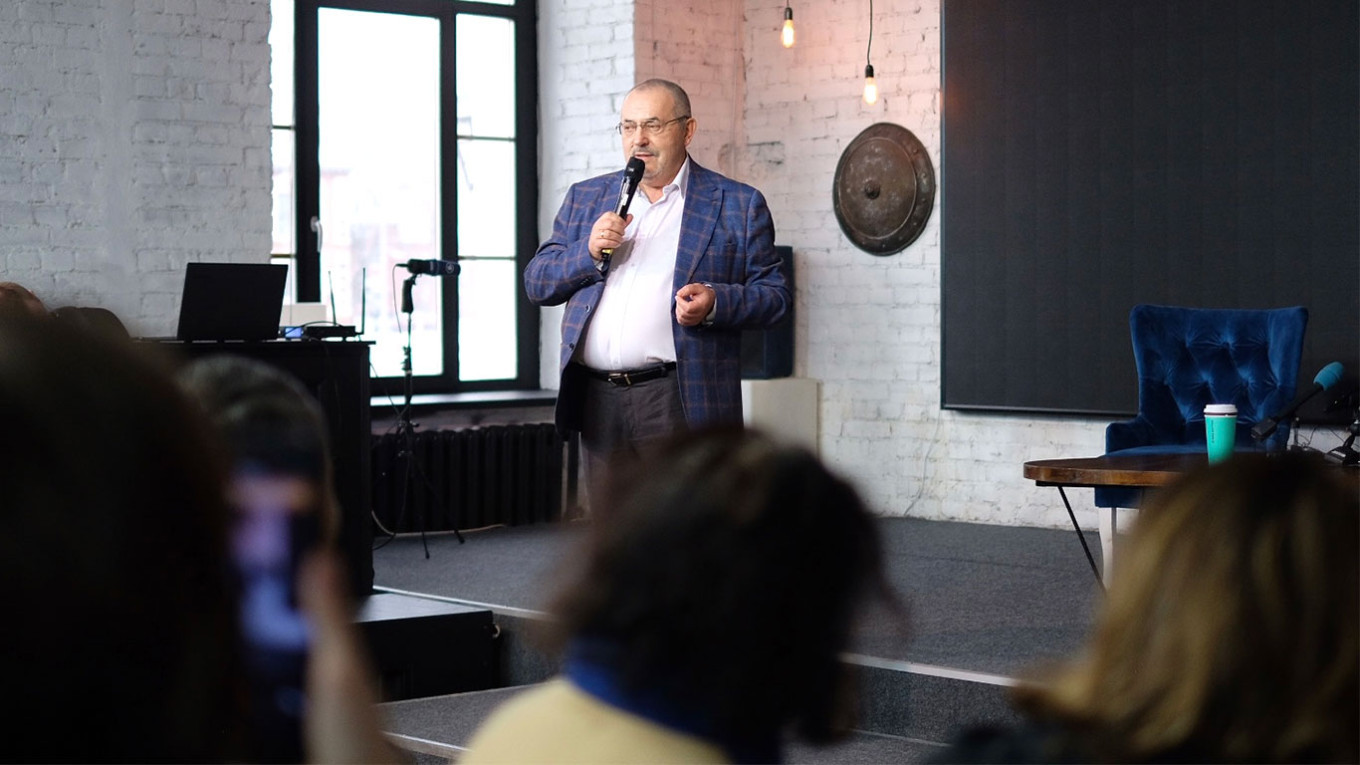
Political analysts have linked the growing war fatigue among Russians to Nadezhdin’s rising popularity. He publicly slammed the so-called “special military operation,” the Kremlin’s term for the war in Ukraine, as “Putin’s fatal mistake.”
“The majority of Russians are in favor of peace negotiations,” Nadezhdin said. “Everyone is tired of the special military operation.”
If elected, Nadezhdin has promised he would ask for an immediate ceasefire, enter negotiations with Ukraine and its Western allies and return all mobilized conscripts home.
“Negotiations will be very hard and will take years,” he admitted.
The politician's exclusion from the ballot was widely perceived as a signal of the Kremlin's intolerance for public opposition to the invasion of Ukraine.
The CEC said over 9,000 of the roughly 105,000 signatures collected by Nadezhdin and his team were invalid, far over the 5% allowable error rate, a claim that Nadezhdin disputes.
According to a late January poll by the pollster Russian Field, Nadezhdin’s popularity stood at 7.8%, significantly higher than the other candidates except for Putin, whose rating stood at 62%.
In January, images of thousands of Russians enduring cold weather to endorse Nadezhdin’s candidacy caused unease in the Kremlin, leading to the decision to bar him from running.
“You saw the huge lines of people who stood in the cold to put their signature for me, there were hundreds of thousands of people all over Russia,” Nadezhdin said. “If I had 1 or 2% at the beginning of the campaign in early January, after that, it started growing 5% every week.”
Nadezhdin noted the significance of his popularity, especially considering his largely online campaign without national television access. He said that his disqualification was an attempt to stop him from reaching a larger audience via Kremlin-controlled national television.
“If I went on television — and I would have the right to do so as a registered candidate — my rating would increase even more,” Nadezhdin said.
Even if allowed to run, his chances of winning would be close to zero due to the Kremlin’s tight grip over the electoral system.
Putin is poised for a landslide victory, potentially becoming Russia’s longest-serving ruler since the imperial era and surpassing Stalin himself.
Regardless of whether he will be allowed to participate in the election or not, Nadezhdin argued that he has already succeeded in disproving the belief that Putin enjoys the support of Russia’s “overwhelming majority.”
“That is a myth,” he said.
In the likely event that he does not appear on the ballot next month, Nadezhdin said he will challenge the ruling, pro-Putin United Russia party in the 2026 State Duma elections with his Civic Initiative party.
Nadezhdin said he believes that if Putin is faced with an overwhelming defeat, he will have no choice but to resign.
“I am convinced this is an absolutely realistic scenario,” he said.
A Message from The Moscow Times:
Dear readers,
We are facing unprecedented challenges. Russia's Prosecutor General's Office has designated The Moscow Times as an "undesirable" organization, criminalizing our work and putting our staff at risk of prosecution. This follows our earlier unjust labeling as a "foreign agent."
These actions are direct attempts to silence independent journalism in Russia. The authorities claim our work "discredits the decisions of the Russian leadership." We see things differently: we strive to provide accurate, unbiased reporting on Russia.
We, the journalists of The Moscow Times, refuse to be silenced. But to continue our work, we need your help.
Your support, no matter how small, makes a world of difference. If you can, please support us monthly starting from just $2. It's quick to set up, and every contribution makes a significant impact.
By supporting The Moscow Times, you're defending open, independent journalism in the face of repression. Thank you for standing with us.
Remind me later.


